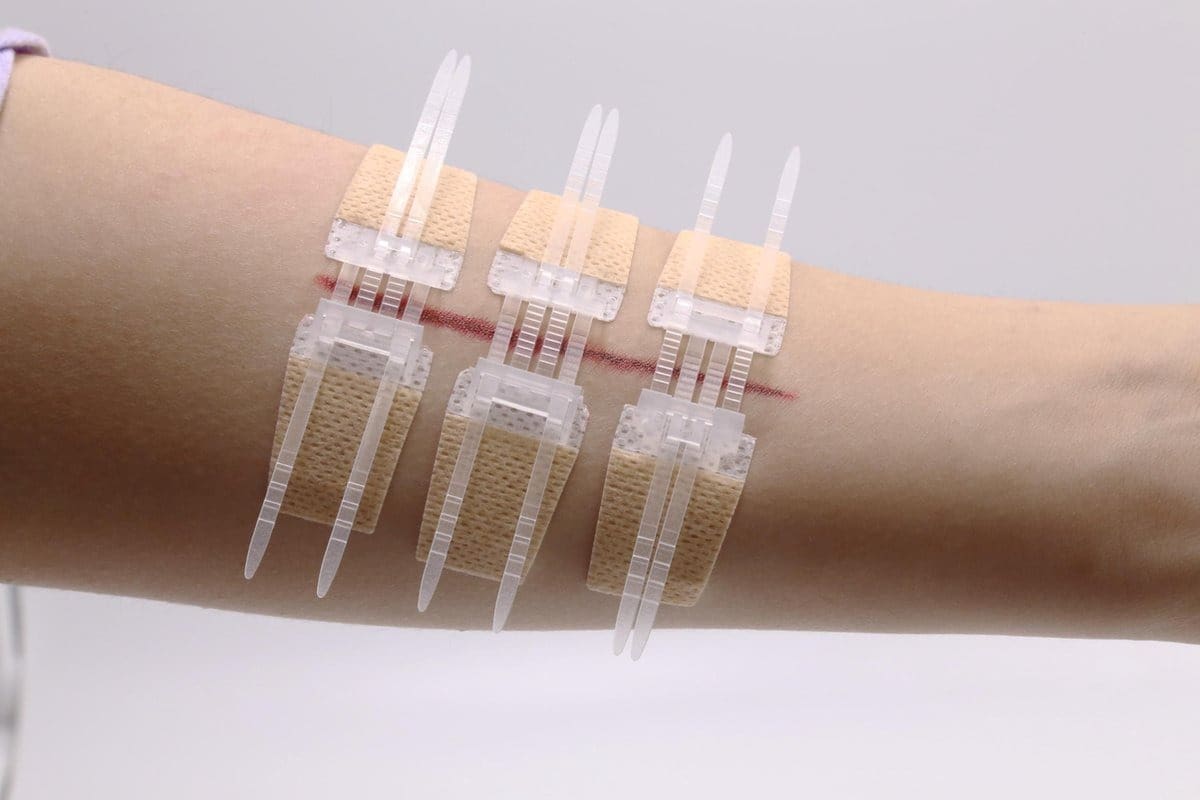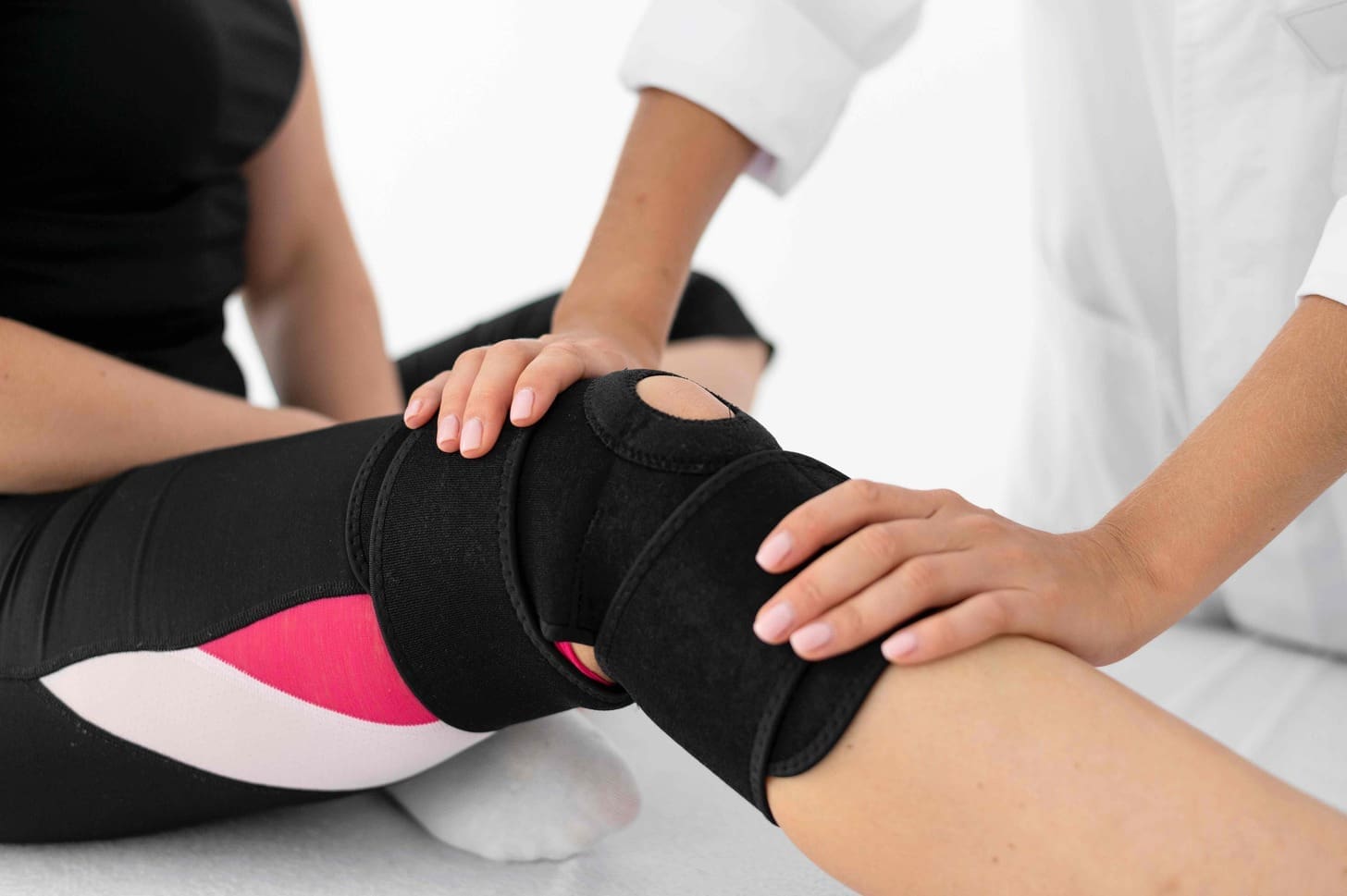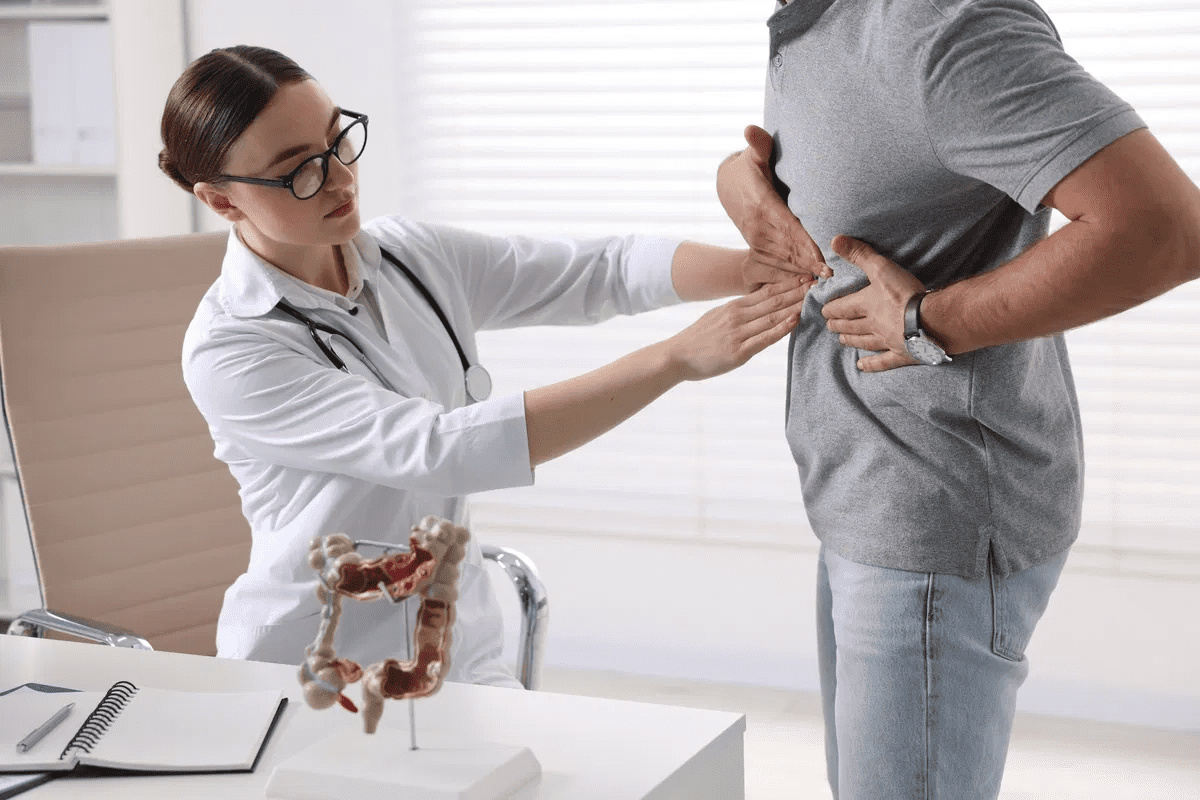Last Updated on November 26, 2025 by Bilal Hasdemir

Steroid injections, like cortisone shots, are used to treat many inflammatory conditions. These include arthritis, bursitis, and tendonitis. At Liv Hospital, we know how important it is to know what to expect after a cortisone shot. Usually, cortisone shots start to ease pain and swelling in three to five days. About 95 percent of people see a big improvement within a week.
The relief from a cortisone shot can last from weeks to months. It depends on the condition and the person. It’s also key to think about drinking alcohol after a shot. Experts say to avoid alcohol for 24-48 hours. We’ll help you understand the effects of steroid injections and the rules for drinking after a cortisone shot.
Key Takeaways
- Cortisone shots typically start to relieve pain and inflammation within three to five days.
- Up to 95 percent of patients experience significant improvement within a week.
- The duration of relief can last from several weeks to several months.
- Alcohol consumption should be avoided in the first 24-48 hours after a cortisone shot.
- Cortisone shots are used to manage symptoms of various inflammatory conditions.
Understanding Steroid Injections: Types and Uses
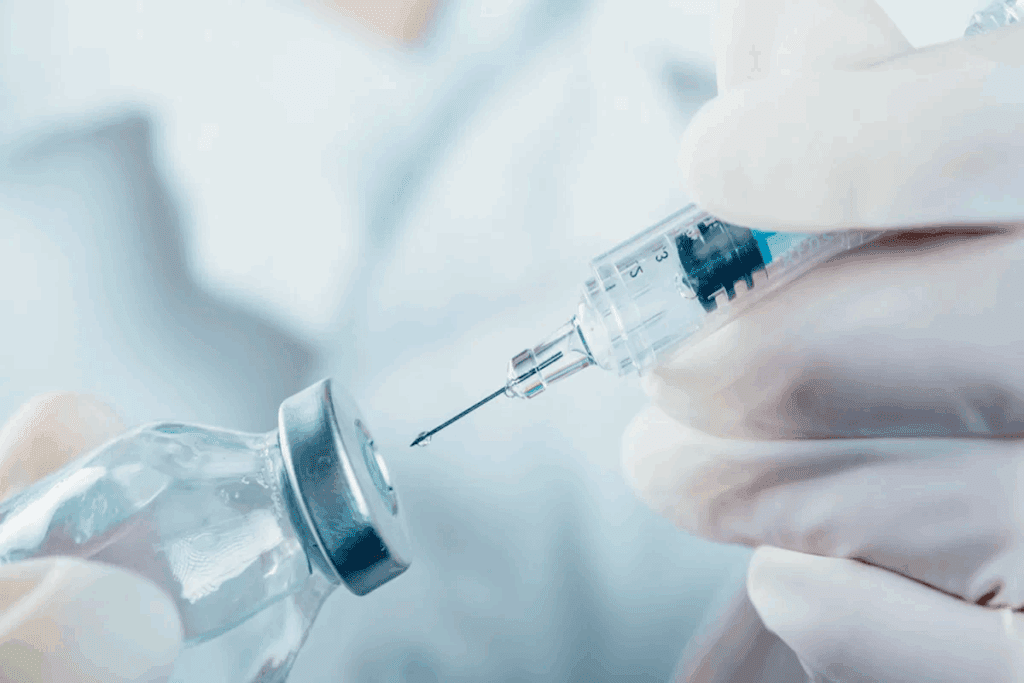
Steroid injections are a common treatment for many inflammatory conditions. These include joint, muscle, and connective tissue issues. They help reduce pain and inflammation, making life better for those affected.
Common Types of Steroid Injections
There are several types of steroid injections, each for different uses. The most used corticosteroids are:
- Triamcinolone: Often used for treating joint inflammation and certain skin conditions.
- Methylprednisolone: Commonly administered for joint and soft tissue injections.
- Dexamethasone: Used in specific cases where a potent corticosteroid is required.
Doctors choose these corticosteroids based on the condition, inflammation level, and patient history.
Medical Conditions Treated with Steroid Injections
Steroid injections are versatile and treat many conditions. These include:
- Osteoarthritis: Reducing joint pain and inflammation.
- Rheumatoid Arthritis: Managing flare-ups and reducing inflammation.
- Tendinitis: Treating tendon inflammation.
- Bursitis: Relieving pain and swelling in the bursae.
These conditions can greatly affect a person’s life. Steroid injections offer a targeted way to manage symptoms.
How Steroid Injections Reduce Inflammation
Steroid injections reduce inflammation by lowering certain molecules. This leads to:
- Decreased swelling and pain.
- Improved joint function.
- Reduced nerve stimulation, leading to pain relief.
This action makes steroid injections effective for many inflammatory conditions. They provide relief and help patients with daily activities.
How Long Before a Steroid Injection Works: Timeline and Expectations
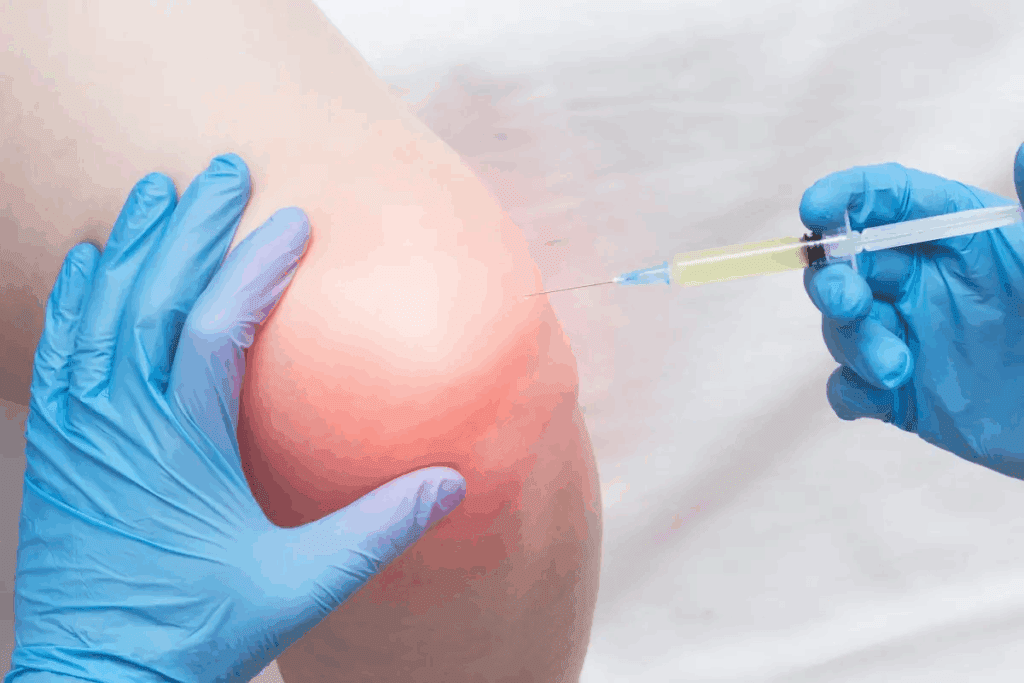
Knowing when a steroid injection starts to work is key to recovery. These injections treat many inflammatory conditions. Understanding when relief comes helps patients plan their healing.
Immediate Effects (First 24-48 Hours)
Right after a steroid injection, relief might not be immediate. The first 24 to 48 hours can see a temporary flare-up of symptoms. But some might notice a slight improvement as the anti-inflammatory effects start.
Short-Term Relief (3-5 Days)
Significant relief from pain and inflammation usually starts within three to five days. The corticosteroid reduces inflammation, improving symptoms. Studies show up to 95 percent of patients see improvement within a week, making this a key time to check the treatment’s success.
Full Effectiveness Timeline (1-2 Weeks)
The full effects of a steroid injection are seen in one to two weeks. The corticosteroid keeps working, and symptoms decrease. It’s important for patients to be patient and let the treatment work fully, as the benefits can last a long time.
Knowing when a steroid injection starts to work helps manage expectations and recovery. While results vary, the general timeline gives a good idea of what to expect after an injection.
Factors Affecting the Onset of Steroid Injection Relief
Several factors influence when steroid injections start to work. Knowing these can help both patients and doctors make better choices.
Type and Dosage of Steroid Used
The type and amount of steroid in the injection matter a lot. Different steroids work in different ways and for different lengths of time. For example, cortisone injections are common, but the exact mix and amount can change how fast relief comes. A bigger dose might work faster, but it depends on the problem and how the person reacts.
Severity of Inflammation and Underlying Condition
The level of inflammation and the condition being treated are key. More severe inflammation might need stronger steroids or more of them. This can affect how soon relief is felt. For example, arthritis with a lot of inflammation might not respond as quickly as milder conditions.
Individual Patient Factors
Each person’s health, age, and other health issues can also play a role. For instance, people with diabetes or on certain meds might react differently. Doctors need to think about these factors when giving steroid shots to get the best results.
Duration of Relief: How Long Do the Effects Last?
Patients often wonder how long the relief from a steroid injection lasts. The time it lasts varies a lot. It depends on the type of steroid, the condition treated, and the patient’s health.
Typical Duration Ranges
The effects of a steroid injection can last from weeks to months. Typically, relief can last between 6 weeks to 6 months. But this can change based on the condition being treated.
Condition-Specific Expectations
Different conditions react differently to steroid injections. For example, injections for tendinitis or bursitis can last months. But injections for arthritis might need to be done more often.
- For tendinitis or bursitis, relief can last 3-6 months.
- For arthritis, relief can vary a lot, often needing more injections.
Signs That the Injection Is Wearing Off
When the effects of the injection start to fade, symptoms may come back. Common signs include increased pain or stiffness in the treated area. It’s important for patients to watch their symptoms and tell their healthcare provider about any changes.
Potential Side Effects and Temporary Discomfort After Injection
Steroid injections can offer a lot of relief. But it’s important to know about possible side effects. These injections are usually safe but can cause some discomfort and side effects in some people.
Common Side Effects
Most people do well with steroid injections. But sme might face common side effects. These include:
- Short-term pain around the injection site
- Bruising or redness at the injection site
- Facial flushing
- Insomnia or disturbed sleep
- Temporary high blood sugar levels
These side effects are usually mild and go away in a few days. It’s key to follow your doctor’s advice on handling these side effects.
Post-Injection Flare: Temporary Pain Increase
Some might feel a post-injection flare, which means more pain at the site. This is usually short-lived and can be managed with:
- Applying ice to the affected area
- Using over-the-counter pain relievers as directed by your doctor
- Resting the affected area
Post-injection flare is not an allergic reaction but a response to the steroid medication. It usually goes away in a few days.
When to Contact Your Doctor About Side Effects
While most side effects are mild and short-lived, there are times to call your doctor:
- Increasing pain or swelling at the injection site
- Signs of infection, such as redness, warmth, or pus
- Fever or chills
- Allergic reactions, such as hives or difficulty breathing
If you face any severe or lasting side effects, it’s important to get medical help right away. Your doctor can help manage side effects and figure out the best next steps.
Alcohol and Medication Interactions: General Considerations
Drinking alcohol can change how medicines work, sometimes making them less effective. This is important to know, as it affects people getting steroid injections. It’s key to understand how alcohol and medicines interact.
How Alcohol Affects Medication Efficacy
Alcohol can change how medicines are processed in the body. It might make medicines work better or worse. This is a big worry for those getting steroid injections, as it could affect how well the treatment works.
Studies show that drinking alcohol can make the liver process drugs differently. This can lead to more medicine in the blood. This might cause more side effects or make the treatment less effective.
Alcohol’s Impact on Inflammation and Healing
Alcohol has different effects on inflammation and healing. While a little alcohol might help reduce inflammation, too much can slow down healing. This is important for people getting steroid injections, as they need their bodies to heal well.
Drinking a lot of alcohol can cause long-term inflammation. This can make the condition being treated worse. So, it’s important to know how much alcohol is safe while healing.
General Medical Advice About Mixing Alcohol and Treatments
Doctors usually tell people not to drink alcohol with medicines, including steroid injections. They often suggest not drinking for a while before and after treatment. This helps avoid bad interactions and get the best results.
It’s important to listen to your doctor about drinking and steroid injections. This way, you can avoid risks and make sure the treatment works well.
Can You Drink Alcohol After a Cortisone Shot?
Cortisone shots help with pain and swelling, but many wonder if it’s safe to drink alcohol after. The mix of cortisone and alcohol is a big worry. It’s important to follow medical advice and think about the risks.
Research on Alcohol and Cortisone Interactions
There’s not much direct proof on how alcohol and cortisone shots interact. But, experts say to be careful. They think alcohol might slow down healing and up the chance of side effects.
Key findings from studies on alcohol and cortisone interactions:
| Study | Findings |
| Study on cortisone and alcohol interaction | Indicated a higher risk of side effects |
| Research on the healing process | Shows alcohol might hinder healing |
| Analysis of cortisone efficacy | Found alcohol could lessen cortisone’s effect |
Medical Recommendations and Guidelines
Doctors usually tell patients to skip alcohol for 24 to 48 hours after a shot. This helps avoid side effects and makes sure the shot works right.
General guidelines for patients:
- Avoid alcohol for 24-48 hours post-injection
- Follow specific advice from your healthcare provider
- Watch how your body reacts to the shot
Potential Risks of Combining Alcohol and Cortisone
Drinking alcohol with cortisone can up the risk of stomach problems and might make the shot less effective. It’s key to think about these risks and the benefits of drinking in moderation.
Knowing how cortisone and alcohol interact helps patients make smart choices after a shot. Always talk to a doctor for advice on drinking after a cortisone shot.
Timeline for Safe Alcohol Consumption After Steroid Injections
Patients often ask when they can drink alcohol again after a steroid injection. We’ll talk about when it’s safe to drink after an injection. This includes the first few days, the first week, and what to know if you get injections again.
First 24-48 Hours After Injection
It’s best to avoid alcohol for 24-48 hours after an injection. The body is adjusting to the steroid during this time. Drinking alcohol can mess with how well the steroid works and increase side effects.
In the first 24-48 hours, the steroid starts to work. It helps reduce inflammation and pain. Drinking alcohol can undo the benefits of the injection and raise the risk of problems.
Considerations for the First Week
After 48 hours, you can slowly go back to normal activities. This includes drinking alcohol in moderation, if your doctor says it’s okay. But always listen to your doctor’s advice. Everyone reacts differently to steroid injections.
When drinking after a steroid injection, drink in moderation. Pay attention to how your body feels and adjust your drinking. If you notice any bad effects or have concerns, talk to your doctor for advice.
Long-Term Considerations for Repeated Injections
If you’re getting steroid injections often, you need to think about alcohol differently. Drinking alcohol carefully is important to avoid risks and keep your treatment working well.
Talking to your healthcare provider about your drinking habits is a good idea. They can give you advice that fits your health and treatment plan.
Optimizing Recovery After a Steroid Injection
Recovering well after a steroid injection is key to getting the best results. Rest, right activity levels, good nutrition, staying hydrated, and follow-up care are all important. These steps help make the treatment work better and reduce side effects.
Rest and Activity Recommendations
Rest is very important after a steroid injection. Try to avoid hard activities for a while to prevent problems and help the area heal. But you don’t need to stay completely inactive. Instead, adjust your activities so as not to strain the treated area too much.
If you got a cortisone shot in your knee, don’t do heavy lifting or bending for a few days. Your doctor will tell you exactly what to do based on your situation and the injection.
Nutrition and Hydration Guidelines
Eating well and staying hydrated are important for healing after a steroid injection. Drinking enough water keeps your joints and soft tissues healthy. While there’s no special “recovery diet,” eating foods that fight inflammation like omega-3s, fruits, and veggies can help.
Some foods and drinks, like alcohol, might not be good for your recovery. We talked about how drinking after a cortisone shot is not advised because of possible risks and interactions.
Follow-up Care and Monitoring
Getting follow-up care is a big part of recovering. Your doctor may want to see you again to check how you’re doing and watch for side effects. Always tell your doctor about any strange symptoms or worries right away.
Keeping an eye on how you’re doing and adjusting your care plan as needed is important. By working with your healthcare team, you can make sure you recover well and get the most from your treatment.
Special Considerations for Different Injection Sites
How you get steroid injections changes based on where you get them. Each spot has its own care tips and possible side effects. Let’s dive into these differences to help you know what to expect.
Joint Injections (Knee, Shoulder, Hip)
Joint injections help with arthritis and joint problems. After getting a joint injection, rest and skip hard activities for a few days. Ice can help with swelling, and physical therapy keeps joints moving. Always listen to your doctor’s advice for the best healing.
Spinal and Epidural Injections
These injections ease spine pain and swelling. They’re great for herniated discs and spinal stenosis. Spinal or epidural injections might cause headaches or more pain at first, but these usually go away. Talk to your doctor about any worries or health issues before the shot.
Soft Tissue and Trigger Point Injections
These injections aim at reducing muscle pain and tension. They’re good for tendinitis and fibromyalgia. After soft tissue injections, stretching, and physical therapy can help. Avoid heavy lifting or bending for a bit after the shot.
In summary, knowing the special needs for each injection site is key. It helps get the most from steroid injections and reduces side effects. By following the right care for each type, you can heal faster and better.
Conclusion: Balancing Effective Treatment and Lifestyle Choices
Knowing how long a steroid injection takes to work is key. It helps make the treatment more effective. Steroid injections are great for managing inflammation and pain.
It’s important to know how cortisone shots work with alcohol. Alcohol can change how well the treatment works. We suggest being careful with alcohol after a shot to get the best results.
Combining good treatment with smart lifestyle choices helps a lot. Knowing how long a shot takes to work and being careful with alcohol are important. This way, patients can get the most out of their treatment.
FAQ
How long does it take for a steroid injection to work?
The time it takes for a steroid injection to work can vary. But you can expect to start feeling relief within a few days to a week after the injection.
Can I drink alcohol after a cortisone shot?
It’s best to avoid drinking alcohol for at least 24-48 hours after a cortisone shot. Alcohol can make the injection less effective and increase side effects.
What are the possible side effects of a steroid injection?
Common side effects include temporary pain or discomfort at the injection site, redness, and swelling. Some people might also experience a post-injection flare, which is a temporary increase in pain.
How long do the effects of a steroid injection last?
The effects of a steroid injection can last several weeks to months. This depends on the condition being treated and individual factors.
Can I consume alcohol after a steroid injection if I’m receiving repeated injections?
If you’re getting repeated steroid injections, think about how alcohol affects your body’s response to the injections and overall health.
What are the guidelines for rest and activity after a steroid injection?
Rest the affected area for a few days after a steroid injection. Avoid strenuous activities to let the steroid work and minimize side effects.
Are there specific considerations for different injection sites?
Yes, different injection sites have unique considerations and risks. This includes joint, spinal, epidural, soft tissue, and trigger point injections. Always discuss these with a healthcare provider.
How can I optimize my recovery after a steroid injection?
Follow your healthcare provider’s advice on rest, activity, nutrition, and hydration. Also, attend follow-up appointments for monitoring.
Can alcohol affect the efficacy of a steroid injection?
Yes, alcohol can interfere with the effectiveness of a steroid injection. It can also increase the risk of side effects. So, it’s best to limit or avoid alcohol after an injection.
What should I discuss with my doctor before receiving a steroid injection?
Before getting a steroid injection, talk to your doctor about your medical history. Include any previous reactions to steroid injections. Also, discuss your plans for alcohol consumption and any concerns about side effects.
Reference:
Ciriaco, M. (2013). Corticosteroid-related central nervous system side effects. PMC, 3853679. Retrieved from https://www.ncbi.nlm.nih.gov/pmc/articles/PMC3853679/



